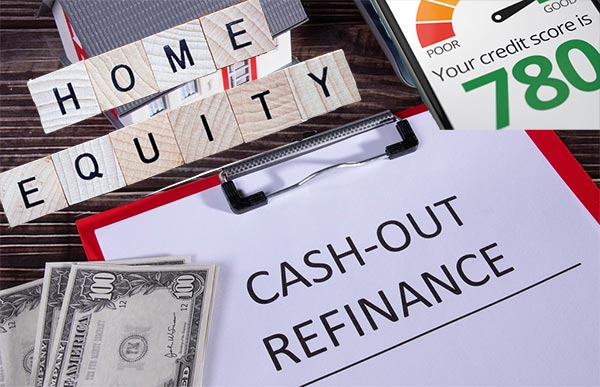
What to Know When Applying for a Cash Out Refinance in Virginia
If you are being affected by the amount of debt you have or need a little more money, it can become challenging to come up with other ways to make extra income. However, don’t go out and get a second job right away or start one of the many gig economy jobs such as home delivery, freelance blogger, ride-sharing, there may be a better alternative worth looking at.
Based on the advice of numerous Virginia mortgage lenders, if you are a homeowner and can satisfy specific lending guidelines and conditions, you should be able to access your home equity for a cash out refinance. What this does is put more money in your wallet and it’s not tied up in your home equity.
A good loan originator will make use of their exceptional industry expertise to help you figure out if a cash out refinance is in your best interest by reviewing multiple factors.
What is a Cash Out Refinance?
When you get a refinance with cash out, you are accessing your home’s equity while getting a new loan interest rate that is more than the balance you currently owe on your present loan. The difference between these two loan amounts plus closing costs is then given to you after closing the transaction.
A few ways people use a cash out refinance is to pay off debt, remodel their home or purchase an item outright instead of going into more debt. Although in order to do this, you have to meet specific requirements.
Who is eligible for a Cash Out Refinance?
If you wish to be considered for a cash out refinance, you have to meet these conditions.
• Home equity amount. When you put in your loan application and sign all loan disclosures, your Virginia mortgage lender will order an appraisal so a licensed appraiser can value your home using nearby comparable properties and appraisal independence requirements (AIR). For you to be eligible for a cash out refinance, you must have at least twenty percent equity in the home.
• Debt-To-Income Ratio (DTI). Your debt-to-income ratio is calculated by using the money you earn versus how much money you spend. Mortgage lenders in Virginia, and other states, will require you to meet particular DTI ratios to make sure you can manage the debt you are taking on. The higher your DTI is, the more probable you are to become delinquent on the loan.
• Credit Score. While the precise FICO scores you will need may vary based on the loan type and how much cash you want to get back. A minimum credit score of 620 is needed to be eligible.
• No Late payments. Mortgage lenders in Virginia look for candidates that they can depend on, so you need to make sure all of mortgage payments were never 30 day late in the last twelve months before thinking about a refinance.
Loan-To-Value Ratio Varies for a Primary, Second or Rental Property
One more component that mortgage lenders in Georgia will give consideration to when you submit your refinance loan application is the loan-to-value (LTV) ratio. Based on information from Experian, one of the big three credit bureaus, lenders use this number to assess how much risk that a loan has. A low LTV ratio has considerably less risk than a high LTV loan.

Scott is a Business Development Manager at 1stNWM. He blogs about home loans, personal finance and lives in Orange County, CA. He feels good about sharing his expertise and real world stories of successful real estate transactions. when he’s not at work, he is with his bestie, a four-legged furry and often sloberring Saint Bernard, Wyatt.